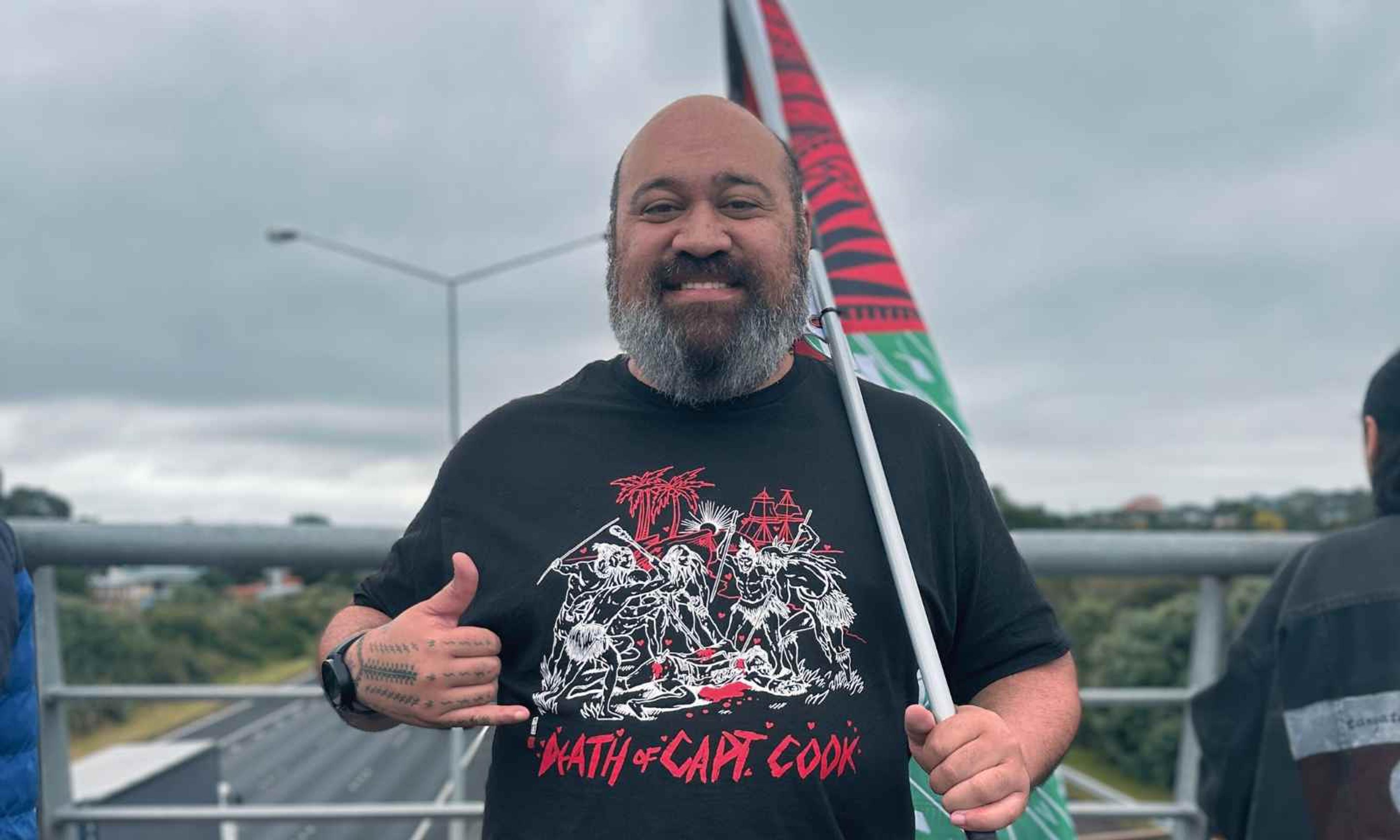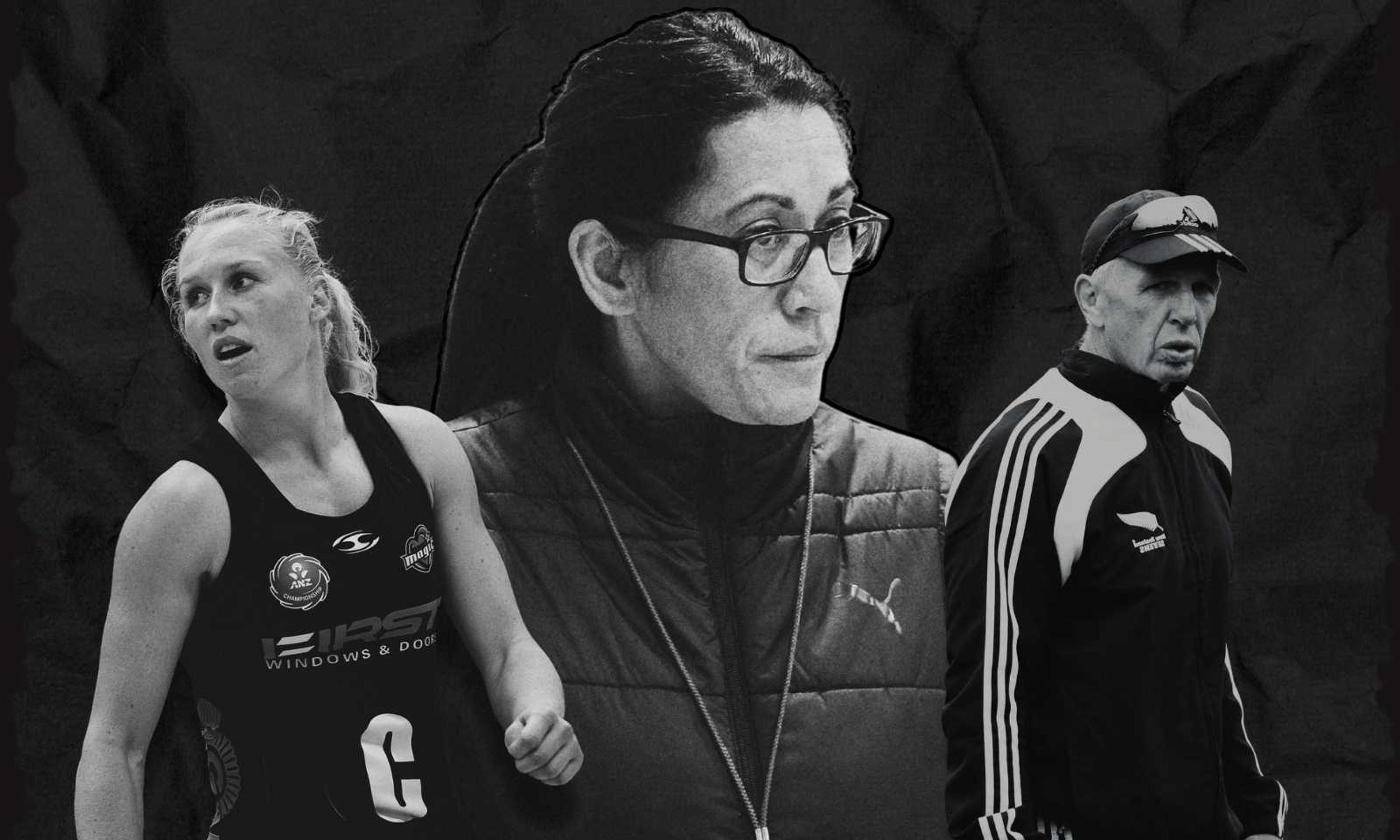

The Wellington Papua New Guinea Community kicked off Tok Pisin Language Week alongside Father’s Day celebrations.
Photo/Facebook/Wellington Papua New Guinea Community
‘One big family’: PNG voices unite for Tok Pisin Language Week
Papua New Guineans, from Dunedin to Wellington, are celebrating their culture and history, with the aim of preserving more than 800 languages.



From grief to renewal: Niuean exhibition ‘Moana, Fonua’ brings generations together

Kiwi sports icons back Dame Noeline Taurua amid netball conflict and coaching ouster

‘One big family’: PNG voices unite for Tok Pisin Language Week


Pacific island nations criticised as ceasefire calls grow in ongoing Israel-Palestine conflict

From grief to renewal: Niuean exhibition ‘Moana, Fonua’ brings generations together

Kiwi sports icons back Dame Noeline Taurua amid netball conflict and coaching ouster

‘One big family’: PNG voices unite for Tok Pisin Language Week
Papua New Guinea (PNG) communities in Aotearoa are marking Tok Pisin Language Week with cultural pride, performances, and calls to preserve their nation’s ancestral languages.
The nationwide celebration kicked off on Sunday and will continue until Saturday, under the theme, “Lukautim, strongim na kirapim tokples na pasin blo tubuna”, which translates to “preserve, revitalise and promote our language and culture”.
Speaking to Inangaro Vakaafi on Island Time, Loretta Hasu, a member of the PNG Dunedin Kominiti and a PhD candidate in archaeology at the University of Otago, says she is passionate about preserving her people’s traditional knowledge.
Papua New Guinea is home to more than 800 distinct languages, nearly 12 per cent of the world’s total. Hasu, who is from the northernmost province of Papua New Guinea, says Tok Pisin, an English-based creole, bridges communication between the 22 provinces and diverse cultures across the country.
But she warns that many of their other languages risk extinction if they are not actively spoken. Hasu explains that younger generations growing up in urban areas often only opt for Tok Pisin or English.
“You tend to see Tok Pisin being spoken like a household language, simply because people come from respective societies where they speak their own languages. But moving into towns and cities, it's hard to communicate with others.”
Watch Loretta Hasu’s full interview below.
She says that while Tok Pisin is widely spoken, English is often encouraged in education. If you do not encourage the practice of [your languages] it's at risk of dying out.”
She urges people to speak their mother tongues whenever they can, saying that if PNG youth are not immersed in their languages, they may be lost in future generations.
She says another risk to language retention is the intermarriage among different cultures and language groups, which can lead to the dominance of a single language or a few languages over others.
Hasu is also weaving her academic research into her community work, studying ancient ceramics to map historic Austronesian trading networks and highlighting the ancestral links binding Papua New Guinea and the Pacific.
“We are one people. Some of the studies along DNA have cemented the idea that we are one people, we've got one common ancestry, especially for those who speak the Austronesian languages. I'm proud to say we are no different. We are one big family.”
In Wellington, community leaders are using the week to connect young people with their culture. Peter Siwi, a Cloud Solutions Consultant and member of the Wellington PNG Community, grew up in the Jiwaka Province before moving to Aotearoa at the age of 15.fv
Siwi says the Wellington PNG community now consists of almost 40 members, including children. He says helping young Papua New Guineans in Aotearoa learn about their heritage has been a personal priority.
“Being in New Zealand, far from my immediate family, having the community around has been good. It's good to see the kids growing up and being able to teach them about our culture, traditions and getting them involved.”
This year’s celebrations include nightly Tok Pisin classes at the Pātaka Museum in Porirua and a Saturday showcase of cultural dances, songs, and crafts.
Events have been organised across Auckland, Wellington, Dunedin, and other centres, including school visits, library programmes, cultural performances, and community gatherings.
“There's always something new to learn and we try to get the kids involved as much as we can. Especially the kids living here, not having to go home or being able to access Papua New Guinea as easily as they can.”
Delene Tangemp Woodham, another member of the Wellington PNG community, grew up surrounded by her community in Wellington. She says hearing Tok Pisin daily from her mother shaped her identity.
Papua New Guinea will mark 50 years of independence on 16 September with nationwide Golden Jubilee events. Plans include a flag-raising at Independence Hill in Port Moresby, cultural festivals such as the Goroka Show and Rabaul Frangipani Festival, a state dinner for dignitaries, and military displays including a tattoo, air shows and a naval fleet review.
A special 50th Independence Anniversary King’s Medal will also be awarded to 3,000 Papua New Guineans for their service.
Woodham encourages those who want to learn about her motherland and says their celebrations for the 50th anniversary of independence on Saturday will present a chance for “new faces”.
Watch Peter Siwi and Delene Tangemp Woodham’s full interview below.
Hasu says sustaining languages requires more than archives or recordings, and encourages people to continue practising languages, culture, dances, and storytelling.
“This will have an impact on the children today and the next generations. To have it shared and practised is one way that we can continue to sustain it into the future. I strongly believe in that.”
Hasu is teaching free short four-week Tok Pisin courses from 15 September to 6 October, through the Centre for Pacific Languages. For more information, click here.
For information on 50th anniversary celebrations in your area, check with your local Papua New Guinea community pages.